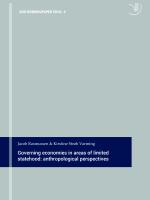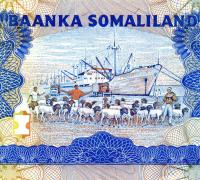How to study economic governance in areas of limited statehood
In many areas across the world, state-institutions have limited reach and capacity. But how are economies organizedd in such areas and how can we study them? These questions are at the core of the research program, GOVSEA. In a new working paper, Jacob Rasmussen and Kirstine Strøh Varming, Roskilde University, discuss ways of studying the everyday governance of economic activity, paying particular attention to contributions from economic anthropology. Common to these is the insight that usual categories - such as formal/informal, state/non-state, and rational/moral – are of little use when we try to understand how and by whom economies are governed. The authors use examples from Somali East Africa to illustrate these different approaches. The Working Paper is part of a new series from the research program GOVSEA (Governing Economic Hubs and Flows in Somali East Africa).
Editors: Tobias Hagmann & Finn Stepputat

